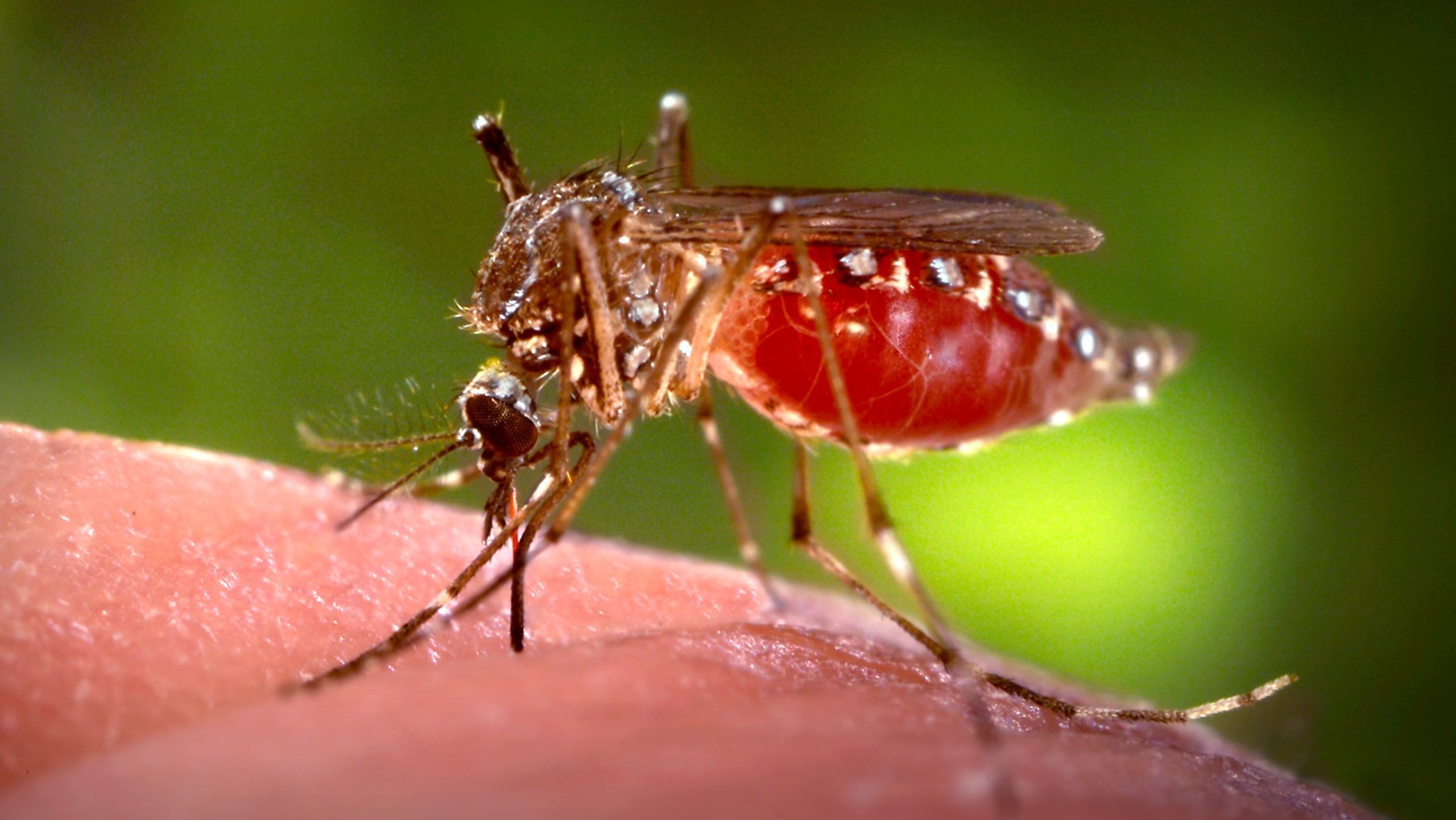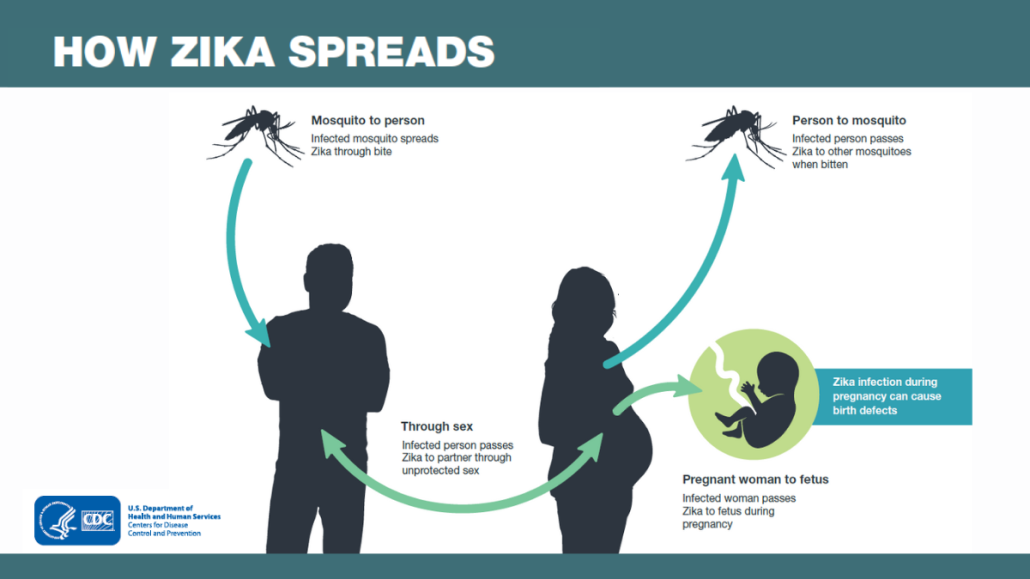Key points
- Zika virus is spread mostly by the bite of an infected Aedes species mosquito.
- Zika virus can be passed from a pregnant person to their fetus. Infection during pregnancy can cause certain birth defects.
- Zika virus can be spread through sex. Condoms can reduce the chance of getting Zika virus from sex.

How it spreads
Zika virus can be spread through mosquito bites, from a person who is pregnant to their fetus, and through sex. More rarely, Zika virus can be transmitted through infected blood or tissues and in the laboratory. Zika virus can be passed from a person before their symptoms start, while they have symptoms, and after their symptoms end.

Through mosquito bites
Zika virus is primarily transmitted to people through the bite of an infected Aedes species mosquito (Aedes aegypti and Aedes albopictus). These mosquitoes are the same mosquitoes that spread dengue and chikungunya viruses. These mosquitoes typically lay eggs in standing water in containers like buckets, bowls, animal dishes, flowerpots, and vases. They like to bite people and live both indoors and outdoors. They bite both during the day and night.
A mosquito gets infected with Zika virus when it bites an infected person during the period of time when the virus can be found in the person's blood, typically only through the first week of infection. Infected mosquitoes can then spread the virus to other people through bites.
Through sex
Zika virus can be passed through sex from a person who has Zika to their partners, even if the infected person does not have symptoms at the time. This includes vaginal, anal, and oral sex and the sharing of sex toys. The timeframes that men and women can pass Zika virus through sex are different because Zika virus can stay in semen longer than in other body fluids.
From a pregnant person to their fetus
Zika virus can also be spread from a person who is pregnant to their child. A person who is pregnant and infected with Zika virus can pass the virus to their fetus during pregnancy or around the time of birth even if they do not have symptoms. Zika infection during pregnancy can cause serious birth defects and is associated with other pregnancy problems. Among people with confirmed or possible Zika infection during pregnancy in U.S. states and territories, Zika-associated birth defects occurred in about 5% of babies.
Breastfeeding
Zika virus has been found in breast milk. Possible Zika virus infections have been identified in breastfeeding babies, but spreading Zika virus through breast milk has not been confirmed. Because current evidence suggests that the benefits of breastfeeding outweigh the risk of Zika virus spreading through breast milk, CDC encourages people to breastfeed, even if they were infected or lived in or traveled to an area with risk of Zika.
Through infected blood, tissue, or laboratory exposures
There are a few reports of laboratory-acquired Zika virus infections, although the route of transmission was not clearly established in all cases. However, no cases of Zika virus transmission in healthcare settings have been identified in the United States.
To date, there have not been any confirmed blood transfusion transmission cases in the United States. However, Brazil has reported transmission through platelet transfusions. Certain human cell and tissue-based products, such as umbilical cord blood, gestational tissues, and reproductive tissues, can harbor Zika virus even months after the initial infection. A person may need to delay blood and tissue donations following Zika.
